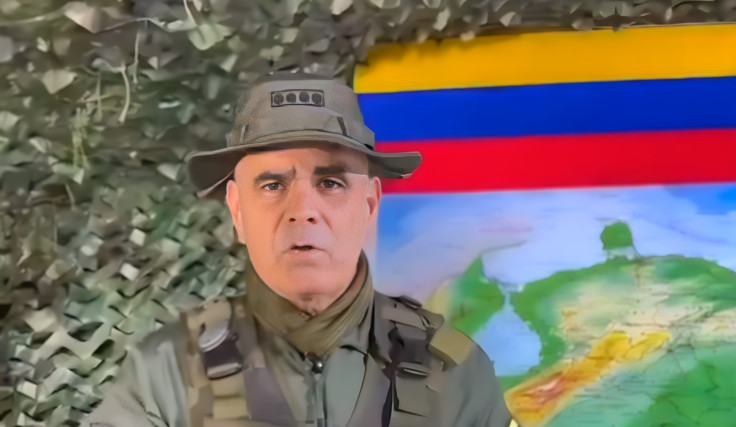
Venezuelan Defense Minister Wladimir Padrino López delivered an unexpected address from a military bunker on Sunday, announcing the deployment of 25,000 troops to confront drug trafficking networks across the country. The move came as the United States intensified military pressure in the Caribbean and maintained a $15 million bounty on his head.
"Happy Sunday to the entire Venezuelan family. I am here with the High Command of the Bolivarian National Armed Forces in the bunker, conducting an assessment of all operations," Padrino said in a video message. "We had an initial deployment of 10,000 troops, plus 15,000 ordered by our Commander in Chief. That makes a total of 25,000 troops with naval and riverine assets, equipped drones, and strong logistics."
The defense chief outlined operations in the northwestern states, which border Colombia. He detailed operations focusing on Sierra de Perijá to detect illicit crops and river patrols in Apure along the Meta, the Capanaparo, the Cunaviche, and the Cinaruco. He added that new reinforcements would be concentrated in the Venezuelan Guajira and the Paraguaná Peninsula in Falcón, regions long regarded as drug-trafficking corridors.
"We will block these routes and reinforce our defenses," Padrino declared.
Desde un búnker? pic.twitter.com/CpBBEdGmQF
— Nitu Pérez Osuna (@NituPerez) September 7, 2025
U.S. Strike Raised Tensions
The announcement followed a dramatic escalation on September 2, when U.S. forces destroyed a vessel in the southern Caribbean, killing 11 people. Washington described the target as a drug-smuggling boat linked to organized crime. President Donald Trump praised the operation as "a necessary action against narco-terrorists."
"They were smugglers, criminals. We took them out before their poison reached American families," Trump said at a White House event. He promised "more decisive actions in the Caribbean" to dismantle cartels he accused of operating with the protection of Venezuela's government.
Secretary of State Marco Rubio called the strike "a clear warning to traffickers and their state sponsors." He signaled further operations might be forthcoming. Defense Secretary Pete Hegseth confirmed additional U.S. naval deployments, including guided-missile destroyers and more than 4,000 Marines.
Senator Rand Paul called it "despicable and thoughtless," warning against the use of military force without clear legal justification. Human rights groups voiced concern over civilian casualties and the precedent of unilateral action in foreign waters.
President Nicolás Maduro responded with fury, denouncing the United States for what he described as an act of murder. "They attacked a Venezuelan vessel and murdered 11 fathers of families," Maduro said in a televised address. "Trump is using the Caribbean as a stage for war. Venezuela will not surrender its sovereignty."
He declared the armed forces on "maximum preparedness" and warned that Venezuela would defend itself in every river and coastline. "The United States uses the excuse of drugs to justify aggression. Our people know the truth," Maduro added.
Bounty on Padrino
The crisis placed Padrino himself at the center of international attention. The U.S. State Department maintained a reward of up to $15 million for information leading to his arrest or conviction, alleging his role in facilitating drug shipments through the Caribbean. He was one of several senior Venezuelan officials indicted in U.S. courts on narcotics charges.
The bounty underscored the paradox of Padrino's position: while commanding one of the largest troop deployments in Venezuelan history, he was simultaneously a wanted man under U.S. law enforcement.
The escalation alarmed regional governments. Colombia expressed concern about instability along its border, while Caribbean states questioned whether U.S. military operations might extend into their waters. Analysts warned the confrontation risked spiraling into a broader conflict if neither side showed restraint.
Washington justified its actions as part of an unprecedented crackdown on drug networks. Caracas insisted it was the victim of a campaign to delegitimize its sovereignty. Independent reports from the United Nations noted Venezuela was not the main transit point for cocaine, but U.S. officials argued traffickers increasingly used its coasts and rivers.
© 2025 Latin Times. All rights reserved. Do not reproduce without permission.







